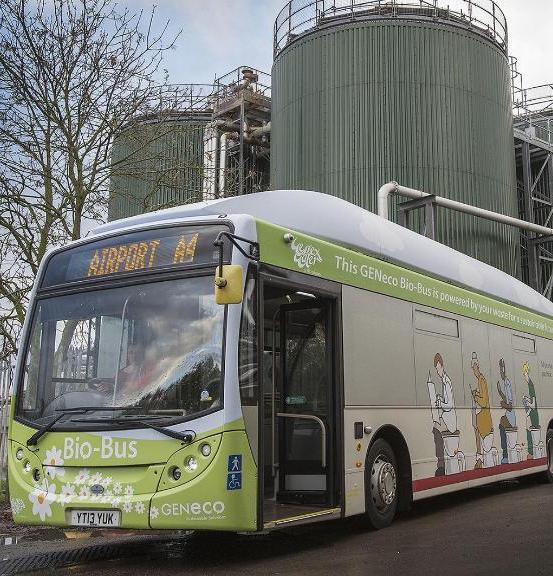British bus powered by human waste ‘will improve air quality’
A Bio-Bus which runs entirely on gas generated by human and food waste has carried its first passengers. The 40-seater has a range of up to 300km on one tank of gas, the equivalent of around five people’s waste over a year. It is being used to provide a shuttle service between Bristol Airport and Bath city centre in south west England. Engineers believe Bio-Bus could provide a sustainable way of fuelling public transport while improving urban air quality.
Gas-powered vehicles have an important role to play in improving air quality in UK cities, but the Bio-Bus goes further than that and is actually powered by people living in the local area, including quite possibly those on the bus itself.
Mohammed Saddiq, general manager of GENeco
The gas, biomethane, produces fewer emissions than traditional diesel engines and is both renewable and sustainable. It is generated at Bristol sewage treatment works, which is run by GENeco, a subsidiary of Wessex Water. This week, the company also became the first in the UK to inject gas generated from human and food waste into the national gas grid network. The annual waste generated from one bus load of passengers would provide enough power for a return journey from Land’s End to John O’Groats.
Using biomethane in this way not only provides a sustainable fuel, but also reduces our reliance on traditional fossil fuels.
Mohammed Saddiq

Science poo bus